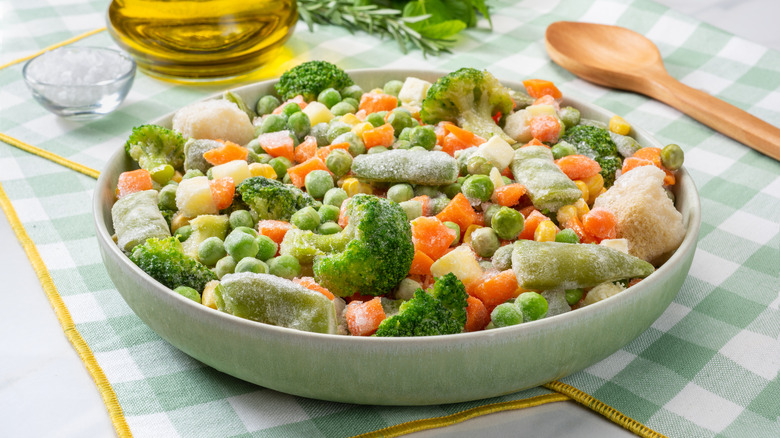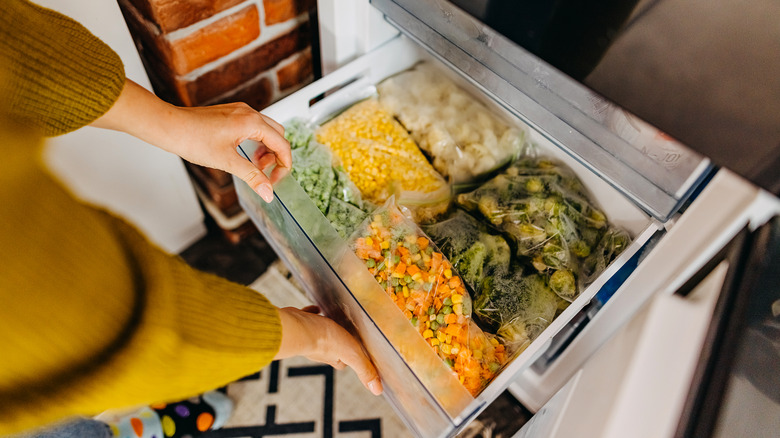How To Avoid Overcooking Frozen Vegetables
Frozen vegetables are a quick and easy option for busy home cooks to put together a meal. But unlike the fresh variety, frozen vegetables are typically blanched or partially cooked before freezing. This means they require less cooking time and are prone to being overcooked, resulting in an unappetizing, mushy mess. Steaming delivers optimum results by retaining the textural integrity of vegetables without losing out on the valuable nutrients preserved in frozen vegetables. On the contrary, boiling frozen vegetables can leach out nutrients and create a waterlogged, lackluster side dish. Thawing is another one of the mistakes that ruin frozen veggies which can also lead to a limp bowl of broccoli.
If you enjoy a crisp snap to your cooked veggies, toss your frozen vegetables in oil before cooking them. This works because oil reaches higher temperatures quicker than water, which allows any moisture to evaporate, yielding a desirable exterior. Some frozen veggies like corn and peas require little to no cooking at all. All you have to do is simply thaw them, or briefly soak them in warm water before adding them to a salad, pasta, or even a curry. Regardless of your preferred cooking technique, make sure to amp up the flavor of your frozen veggies. Be it a drizzle of flavored oil, a squeeze of lemon or lime for a vibrant zing, or your desired mix of herbs and seasonings, these common grocery staples can easily be incorporated into a gourmet meal.
Why buy frozen vegetables?
Frozen vegetables may get a bad rap for not being on par with the quality of fresh produce, but that narrative deserves to be busted. Frozen vegetables are actually nutritional powerhouses that often surpass fresh produce in terms of nutrient preservation. The secret behind frozen veggies is that they are picked in-season and flash-frozen at their nutritional peak. This locks in vital vitamins, minerals, and antioxidants, and makes them a consistent source of essential nutrients throughout the year.
On the other hand, fresh vegetables begin to lose nutritional value from the moment they are picked, with the nutrient content deteriorating by the time they reach your grocery store, make it to your kitchen, and are ultimately cooked and eaten. And, unlike some canned vegetables, many frozen vegetables are processed without additional preservatives or sodium, making for a whole food option for many individuals. For the planet-conscious consumer, buying frozen vegetables eliminates the stress of spoilage and can reduce food waste. Be it for economical or practical reasons, frozen vegetables let you enjoy high-quality, nutrient-dense produce as part of your busy lifestyle.

